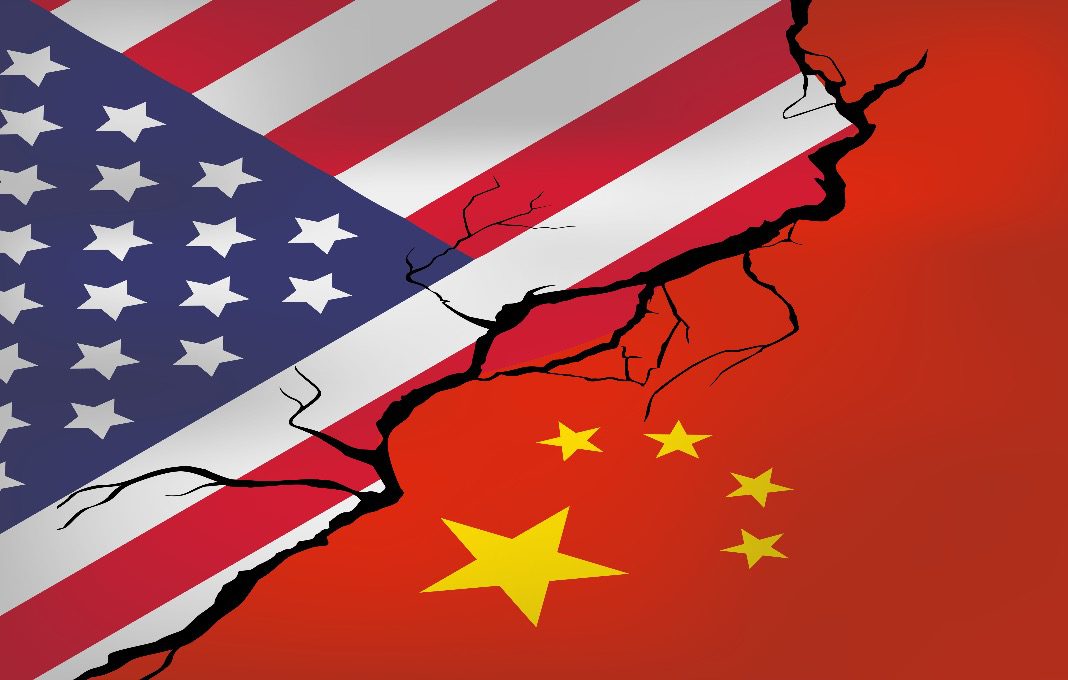China: The Decoupling Is Here


There’s been tremendous noise around the U.S.-China relationship, an escalating tit-for-tat that’s left CEOs struggling to retain access and partnerships that once held such promise amid all manner of rising economic and military tension. But the Chinese Communist Party sent an unmistakable signal to U.S. CEOs in September by banning the use of iPhones in government offices: The decoupling is here.
This shouldn’t surprise anyone, of course. For years, China and the U.S. have been sparring, and China has been acting on its goal to become economically self-sufficient (which is absolutely it’s right, as is the case for every nation). But for many Western companies, the market was too big and too lucrative to face what was invariably going to happen. Not anymore. By taking this tough a stance with Apple, perhaps the most important Western manufacturing partner and employers the country has, China put the rest of the world’s CEOs on notice. The past is past.
Make no mistake: This will impact nearly every company or CEO. For those leading firms with extensive exposure to China, this is a critical moment to ignore the noise and focus on what you can control. This will hit your intrinsic value. Suppliers will have their value hurt, too. What are you going to do next? Have you and your board been discussing this? Have you informed your investors? Have you planned that some of your facilities may require to be closed or repurposed? If you were sourcing from China to even supply to Chinese your product, which is an amalgamation of components of multiple countries, do you see what you need to think in the short run and particularly medium run? This is the time to start figuring this out because you are not going to have the long run. A few thoughts on how to move forward from here:
• Make a realistic strategic assessment. If China’s goal is to be economically self-sufficient, what does that really mean for your strategy? Will you be required to exit China? If so, by when? If you were planning to make more investments in these facilities in China, do you need to reconsider? Be hard-headed and cleareyed about the situation. Be wary of your bias for optimism, for believing things will be ok.
• Confirm the reality. Map out when your supplies are not going to be required, when your product will not be sold, when demand of your product will decline precipitously. Be realistic here—but be conservative. You don’t want to be surprised. You want to be able to plan.
• Assess the impact. What does all this mean for you economically? You could have revenue loss and you could have to come to terms with bearing it the best way you can while you search for new opportunities. Make your decisions preemptively.
• Pay attention to China’s strategy for Chinese companies. Watch closely to see how CCP announcements are interpreted and executed in the country’s businesses for clues on where the business climate is shifting—and how fast. The CCP is in almost every Chinese company—they require that they follow the government policies. Even if they may not be mandatory for the private sector, they do this informally. This will tell you a lot about timing.
• Be confident. Say to yourself, “This is the reality. We are going to confront it and not be forced to take action on short notice.” Yes, you can do this.
Smart CEOs won’t spend an undo amount of time fretting the challenges of decoupling with China. Save your energy. It was inevitable, it is their right—just as is the case for America, the UK or any other sovereign nation. Rather, spend your time looking to new opportunities at home (there are always opportunities at home for the right products and solutions) and go where the money and talent is flowing: India, Vietnam, Mexico and the new Middle East—especially Israel, the UAE, Saudi Arabia and Qatar. These regions are going to flourish. That’s where the next big markets lie.
Learn how to go there and help those countries adopt what you sell. Pick the countries where there is demand, where there is a gap that’s not being filled. Where the governments will help you learn what they have in those countries, what is needed and how to get there. Be ready to compete with the Chinese everywhere. Is your design better? Is your price better? Do you have a segment that you should own that is finding revenues with your existing core competence?
That’s where you should be focusing now. When it comes to the U.S. and China, it doesn’t matter who started this fight, it doesn’t matter what people are saying about the trajectory of the Chinese economy, it doesn’t matter what could have been or what should be. Decoupling is happening, but your future is in your hands. Are you ready?


0

1:00 - 5:00 pm
Over 70% of Executives Surveyed Agree: Many Strategic Planning Efforts Lack Systematic Approach Tips for Enhancing Your Strategic Planning Process
Executives expressed frustration with their current strategic planning process. Issues include:
Steve Rutan and Denise Harrison have put together an afternoon workshop that will provide the tools you need to address these concerns. They have worked with hundreds of executives to develop a systematic approach that will enable your team to make better decisions during strategic planning. Steve and Denise will walk you through exercises for prioritizing your lists and steps that will reset and reinvigorate your process. This will be a hands-on workshop that will enable you to think about your business as you use the tools that are being presented. If you are ready for a Strategic Planning tune-up, select this workshop in your registration form. The additional fee of $695 will be added to your total.

2:00 - 5:00 pm
Female leaders face the same issues all leaders do, but they often face additional challenges too. In this peer session, we will facilitate a discussion of best practices and how to overcome common barriers to help women leaders be more effective within and outside their organizations.
Limited space available.

10:30 - 5:00 pm
General’s Retreat at Hermitage Golf Course
Sponsored by UBS
General’s Retreat, built in 1986 with architect Gary Roger Baird, has been voted the “Best Golf Course in Nashville” and is a “must play” when visiting the Nashville, Tennessee area. With the beautiful setting along the Cumberland River, golfers of all capabilities will thoroughly enjoy the golf, scenery and hospitality.
The golf outing fee includes transportation to and from the hotel, greens/cart fees, use of practice facilities, and boxed lunch. The bus will leave the hotel at 10:30 am for a noon shotgun start and return to the hotel after the cocktail reception following the completion of the round.